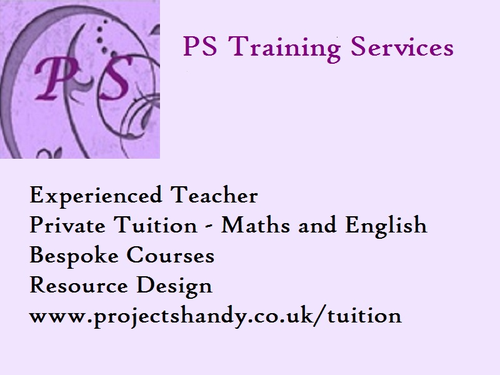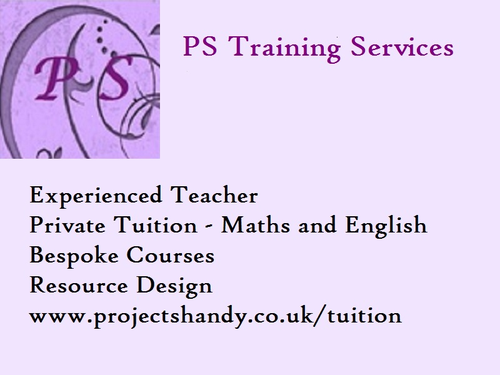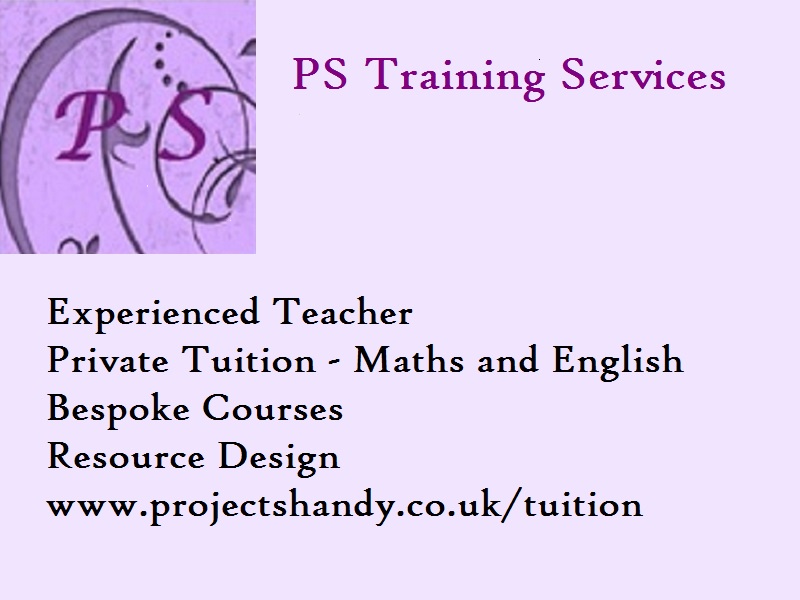PS Training Services' Shop
Welcome to the PS Training Services resource shop. There are a mixture of English Language, English Literature and Mathematics resources in this shop. These resources have been developed throughout my teaching career, which has included: * Secondary School teaching (English Language, Literature, Mathematics) in the UK and New Zealand * Private Tutor for 4+ years (ages 8 - adult) * Adult Education Teacher for 5+ years A variety of resources are available, including paper based and digital.






















